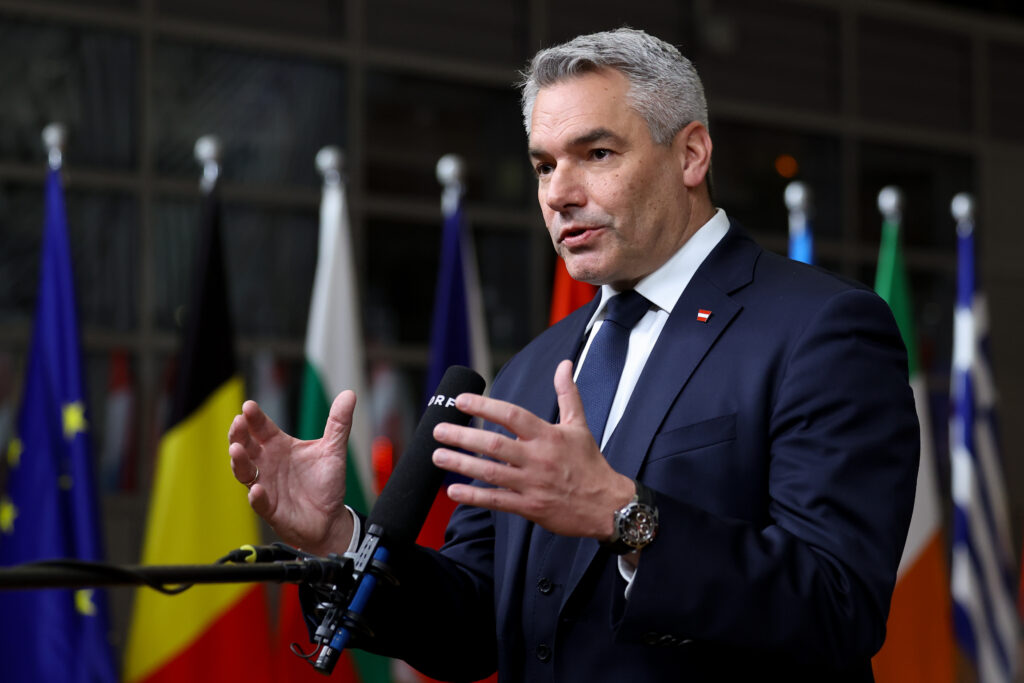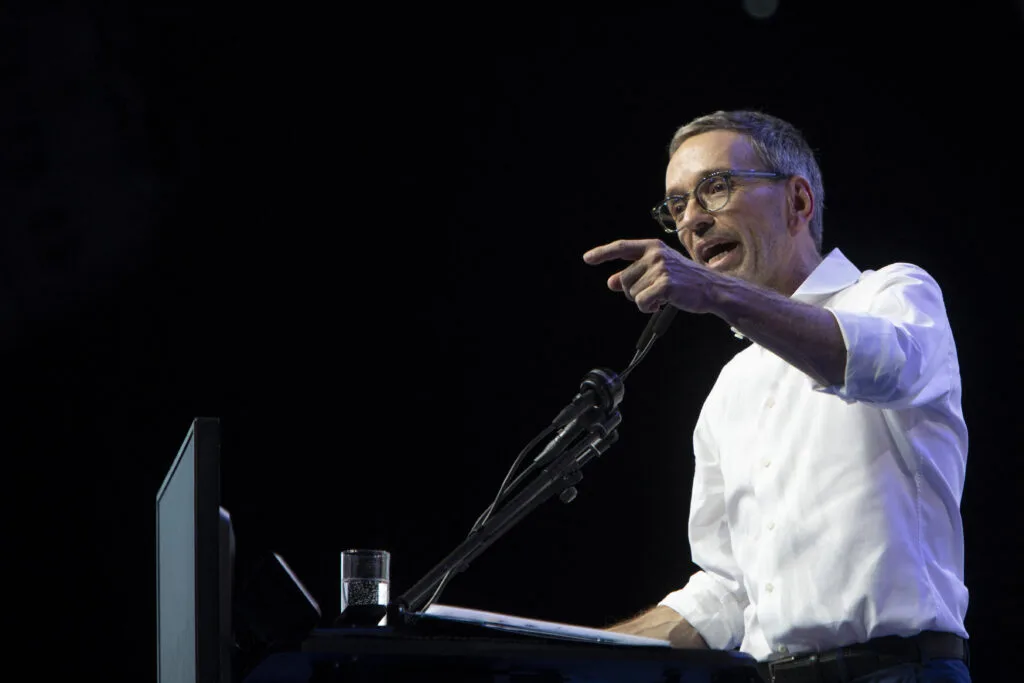Brussels – A far-right prime minister may soon take office in Austria since, after over three months, the traditional parties failed to reach an agreement on a coalition executive. Thus, the President of the Republic mandated Herbert Kickl, the leader of the pro-Russian and anti-migrant ultra-right, to form the next government. If he succeeds, it will be the first time the radical right has been in charge in Vienna since World War II.
The missed opportunity of traditional parties
After the victory of the Austrian Freedom Party (FPÖ), the extreme right-wing populist and Euroskeptic formation created from the ashes of Nazism and led by Herbert Kickl, at elections on September 29, the President of the Republic Alexander Van der Bellen instructed outgoing Chancellor Karl Nehammer to initiate negotiations to form a government.
However, the negotiations that Nehammer, leader of the People’s Party (ÖVP) currently in power with the Greens, started with the Social Democratic Party (SPÖ) and the Neos liberals to keep the ultra-right out of the control room lasted little more than three months, until January 3, when centrists called themselves out from negotiations, citing unreconcilable disagreements with potential partners in a three-way coalition.

At that point, conservatives and socialists continued to negotiate. Finally, on January 4, Nehammer announced that it was impossible to agree on a common program. At the same time, the outgoing chancellor announced his imminent resignation as leader of the ÖVP and as head of the Austrian government.
The far right in government
Given the numbers in the Nationalrat, the lower house of the Austrian legislature (where the FPÖ holds 57 of the 183 total seats, the ÖVP 51, the SPÖ 41, Neos 18, and the Greens 16), the head of state had no other option but to give Kickl an exploratory mandate to create an executive, which, if successful, would be the first led by the ethno-nationalist ultra-right since 1945.
So, Van der Bellen met (January 6) the leader of the FPÖ, for whom the only way forward is an alliance with the Populars. It would not be the first time the two parties have governed together. However, there is no precedent in Austria’s modern history where the chancellorship is in the hands of a post-Nazi party. In both instances when the FPÖ was in government (2000 and 2017), it was the minor coalition partner with the conservatives.
Statement on the government formation mandate to Herbert Kickl. pic.twitter.com/PSOketndHI
– Alexander Van der Bellen (@vanderbellen) January 6, 2025
According to the president of the Republic, Kickl “has the necessary confidence to find workable solutions within the framework of government negotiations and wants to assume this responsibility.” Now we have to see how the talks with Nehammer’s orphaned ÖVP (which does not have positions too far removed from the FPÖ on some points, starting with migration) will go. If there is no agreement, the only option will be early elections, something the ultra-right sees favorably, as the most recent polls give it further growth, with around 35 percent support.
Whoever leads the next executive will still have to take on the difficult task of securing public accounts: Austria has been in recession for a couple of years and risks an excessive deficit infringement procedure from Brussels, as its deficit-to-GDP ratio is at 3.7 percent (European rules set the ceiling at 3 percent).
The positions of the FPÖ
Kickl, who, in the European Parliament, is allied with Matteo Salvini, Viktor Orbán, Marine Le Pen, and Geert Wilders in the Patriots for Europe (PfE) group, is a highly controversial figure. He has never concealed his sympathies for the National Socialist past of the Austrian Republic, for example, by casually using the Hitlerian expression Volkskanzler (“People’s Chancellor”).

Following the so-called Ibiza gate, the scandal that led to the fall of the executive led by Chancellor Sebastian Kurz, and early elections in 2019, Kickl – who at the time was Interior minister – intercepted the widespread discontent in the population, winning especially on issues such as the increased cost of living, the repercussions of the war in Ukraine (more than 80 percent of Vienna’s imported gas from abroad comes from Russia. The FPÖ advocates the need to stop military aid to Kyiv and lifting sanctions against the Kremlin), the economic crisis following the pandemic, and immigration.
On the latter point, the election program of the FPÖ in the September elections was called, again tracing the words of Nazi propaganda during World War II, “Fortress Austria” and called for the introduction of schemes of re-immigration along the lines of the German AfD, to expel “uninvited foreigners” from the country and create a “homogeneous nation,” i.e., a white ethno-state.
English version by the Translation Service of Withub






